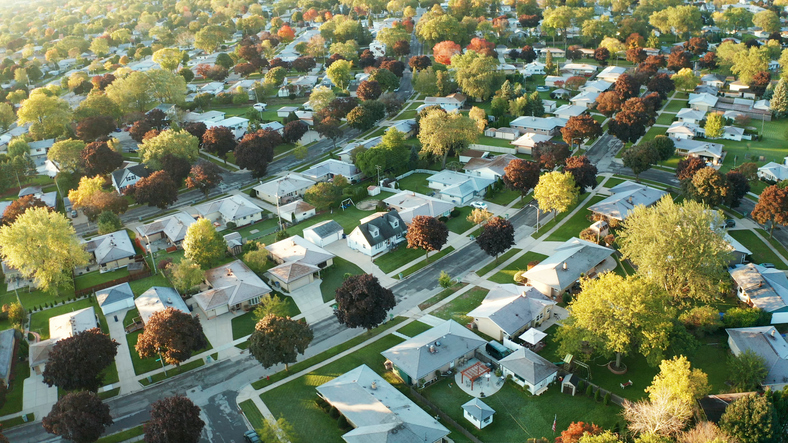Existing home sales are down across the country, which is as expected as the U.S. combats the coronavirus outbreak. But a new report by First American Financial Corporation says that is likely only temporary as sellers wait until the economy recovers.
The First American Real House Price Index shows that home sales dropped 8.5% in March compared to the prior month, and listings followed suit. Mark Fleming, chief economist at First American, said in a press release that an analysis of recessions — not including the most recent one — shows housing has a “stickiness” in terms of growth in value.
While homes are likely to gain value slowly during a recession, it’s uncommon for them to lose value, according to the report. “The ‘downside stickiness’ of house prices is unique because typically aggregate demand shocks put a lot of downward pressure on the prices of goods and services, but in the housing market, sellers often withdraw supply rather than sell at lower prices,” Fleming said. “This dynamic played out in March, as the supply of homes for sale declined by 10.2% compared with one year ago.”
Buyers and sellers retreating from the market will lead to a moderation in house price appreciation, but transactions will continue, Fleming said. “The housing market may be down, but it may be better positioned than many believe,” he added.
That prediction manifested in valuation data from First American. The February 2020 Real House Price Index noted a 1.6% decrease in prices from January 2020 and a 5.8% year-over-year decrease from February 2019.
House-buying power — how much a buyer can afford based on changes in income and interest rates — was up, though, increasing 2.5% from January 2020 and up 14.6% from February 2019.
Real house prices have dropped 19.8% from January 2000, and although unadjusted house prices are 10.3% above the 2006 peak and adjusted house prices “remain 42.8% below their 2006 housing boom peak,” the report noted.

